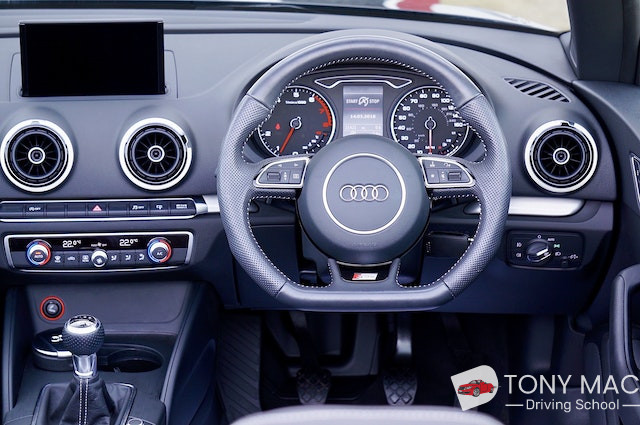Driving Schools in the UK: A Comprehensive Guide
Learning to drive is a substantial turning point in lots of people's lives. For those in the United Kingdom, a driving school is often the very first action toward accomplishing this goal. Comprehending the different aspects of driving schools, consisting of the types, expenses, and procedures involved, can make the journey smoother and more notified. This article dives into the fundamentals of driving schools in the UK, offering insights into their operations and what prospective learners can expect.
Types of Driving Schools
Driving schools in the UK can be classified into numerous types, each accommodating different requirements:
| Type of Driving School | Description |
|---|---|
| Local Driving Schools | Individually owned, these schools typically provide customized service and affordable rates. |
| Franchise Driving Schools | Popular brand names with a nationwide existence, using structured lessons and standardized training. |
| Expert Driving Schools | Focused on particular locations, such as advanced driving, defensive driving, or driving for people with impairments. |
| Online Driving Schools | Offer theoretical lessons and resources online, making preparation for the theory test more available. |
Picking the Right Driving School
Choosing the right driving school can be crucial to your learning experience. Here are some factors to consider:
- Reputation: Check online reviews and reviews.
- Trainers' Qualifications: Look for fully qualified trainers who are signed up with the Driver and Vehicle Standards Agency (DVSA).
- Lesson Formats: Determine if they offer both manual and automatic lessons.
- Rates Structure: Compare costs and look for surprise costs.
- Customer care: Consider the responsiveness of the school to queries.
Expenses of Driving School
The expense of driving lessons in the UK can differ extensively based upon numerous factors, including location, school type, and instructor experience. Here's a breakdown of typical costs:
| Service | Average Cost (₤) |
|---|---|
| Single Hour Lesson | 30-65 |
| Block Booking (10 Lessons) | 250-600 |
| Driving Test Fee | 62 (weekdays), 75 (weekends) |
| Theory Test Fee | 23 |
Extra Costs to Consider
- Books and Study Materials: ₤ 20-50.
- Insurance: The expense will vary based on the type of lorry and protection (student driver insurance might apply if using a parent's car).
- Additional Tests: For advanced or specialist driving courses, fees may apply.
The Learning Process
The process of learning to drive includes several actions. Here's an overview:
- Choose a School: Select a driving school that fits your requirements.
- Book a Lesson: Schedule your very first lesson and ensure you have the essential documents, such as a valid provisional driving license.
- Theory Test Preparation: Most learners take the driving theory test before their dry run, which examines understanding of road rules and signage.
- Practical Lessons: From fundamental control of the vehicle to intricate maneuvers, practical lessons will vary in strength and period.
- Driving Test: After adequate training, learners will book and undergo the practical driving test to assess their skills behind the wheel.
The Importance of Theory and Practical Tests
Both tests are important parts of becoming a licensed driver in the UK. Each serves a distinct purpose:
- Theory Test: Covers road safety concepts, hazard perception, and highway code understanding. Getting ready for this test often includes online practice concerns and research study materials.
- Dry run: Assesses the driver's capability to run a car safely and successfully. Passing this test grants the learner a complete driving license, enabling them the freedom of independent driving.
Frequently Asked Questions (FAQs)
1. How long does it take to learn to drive?
The duration varies based on private ability, however usually, students may require 20 to 45 hours of lessons, in addition to additional practice to pass the driving test.
2. What is the minimum age for driving in the UK?
A person can obtain a provisional driving license at 15 years and 9 months; however, they can not take the driving test till they are at least 17 years of ages.
3. Can I take driving lessons in my own cars and truck?
Yes, if your vehicle fulfills the essential legal requirements and is guaranteed for another driver. Nevertheless, Local Driving Instructor is suggested to examine whether your instructor is comfortable with this arrangement.
4. What if I fail the driving test?
Failing the driving test is not uncommon, and learners can retake it after a waiting period. It's essential to review feedback offered by the examiner before attempting once again.
5. Can I reserve intensive driving courses?
Yes, numerous driving schools use intensive courses that condense the discovering process into a much shorter timespan. This can be advantageous for those aiming to get certified quickly.
Driving schools in the UK offer various services to accommodate people looking for to learn how to drive. From local, independent schools to reputable franchises, students have actually numerous options tailored to their requirements. Understanding the expenses included, the discovering procedure, and the value of theory and practical tests will make it possible for prospective chauffeurs to make informed decisions on their journey towards acquiring self-reliance through driving. Whether one chooses to take pleasure in the open road or utilizes the automobile for day-to-day travelling, discovering to drive is an important ability that features both duties and freedoms.

